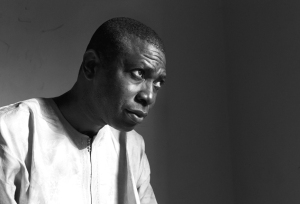
Dear Christians,
When was the last time you made a stupid mistake, or took a wrong turn?
Did anyone ask if you were lost?
If someone asks, “Are you lost?” It can feel like a pointed remark. It emphasizes what is wrong, not what could be right. Most don’t enjoy feeling lost, being called lost, or being accused of being disoriented, and confused. Do you?
It’s often best to take the references to “being lost” in Biblical stories in their typical context of searching and finding something dear and misplaced. (Think: 1 lost sheep of the 100, the lost and valuable coin, etc.) What is lost is not something denigrated, but something worthy/lovable and missing from home. It is not speaking of a foreign thing, or scrappy thing.
Often Christians talk of “The Lost” (the sinner) though not in the context of finding them, but of fixing them. It doesn’t only strike me as rather rude, but it strikes most people this way. Since it’s typical “church speak,” most Christians are totally immune to its unloving sound.
The fact is we all feel a bit lost sometimes. We all feel lonely or afraid at points. It is when we can awaken to the Reality of God’s consistent love and power, and especially when we experience it from others, that we may see huge transformations for the better. Even then, we will still have our ups and downs, but the chance to have joy (sturdy happiness) and then, when a fuller, more abundant life is accessible. This is truly a gift of grace, (not merit).
As children of God, God’s love can show through us, like the father in the story of the Prodigal son, who exclaimed when his son came home, “He was lost, but is now found!” Did he want to fix him? Did he want to teach him a lesson? Hit him? Did he want to get him tested for HIV, ground him, give him a tongue lashing, or tell him what was right and wrong? Um. nope. The son knew already. Most missing people know right and wrong all too well, also. Many think they won’t be welcomed “home,” or think of the community of Christians as “home.” So, they can think, why should they bother trying? Ironical, isn’t it? Hospitality and hospital come from the same root word, and this manner of comfort just must be there to truly show God’s love.
What is a “missing one”? This one is not a person who is less than. It it not one to whom another human should “straighten out,” and save to the narrow path. People aren’t that powerful, and shouldn’t think they are. It’s just tacky. Most of it involves, standing true, and getting out of the way so grace can work its amazing-ness. God doesn’t need us to hold his hand. He asks us for our loyalty, but not just in our love to him-it is in our love to others from the perspective in which he sees them also.
How do you see it?
photo credit Creative Commons Andy Piper


 When I was in under my parent’s care, I was hit with a spatula among other things, in what my parents called discipline with “the rod”. This was picked over “time outs,” or being grounded, and my back side broke many a spanking implement–wooden rulers and cooking spoons, frosting spatulas, pancake spatulas, and probably other stuff I’ve blocked out psychologically. (I won’t even go into the things that didn’t or couldn’t brake on my backside!)
When I was in under my parent’s care, I was hit with a spatula among other things, in what my parents called discipline with “the rod”. This was picked over “time outs,” or being grounded, and my back side broke many a spanking implement–wooden rulers and cooking spoons, frosting spatulas, pancake spatulas, and probably other stuff I’ve blocked out psychologically. (I won’t even go into the things that didn’t or couldn’t brake on my backside!)
